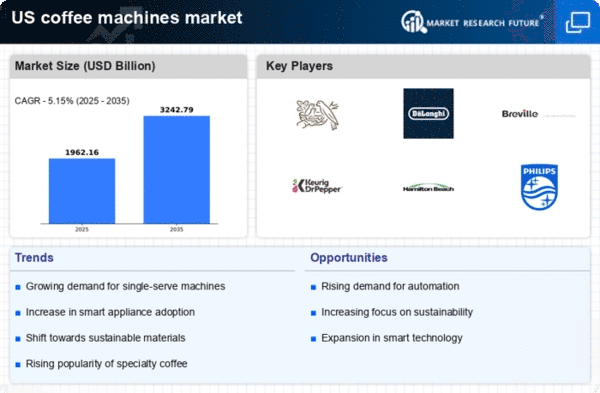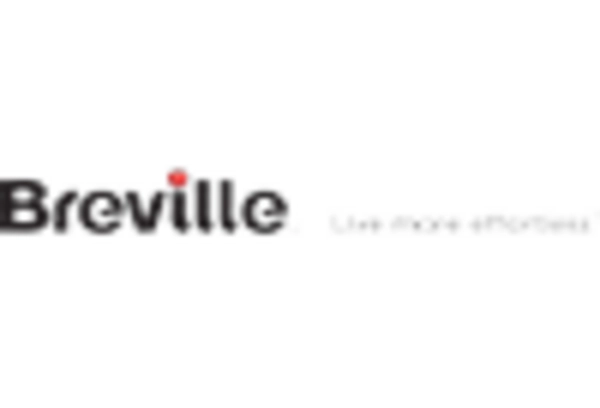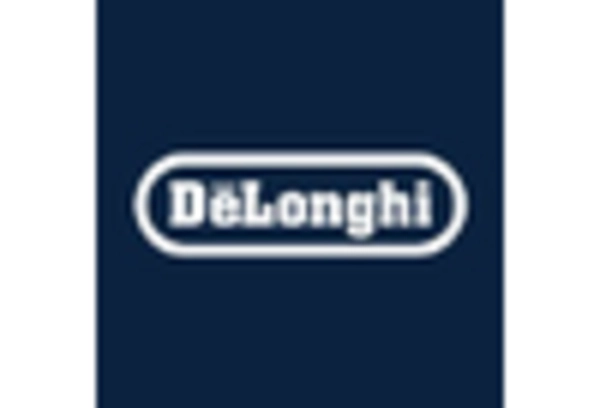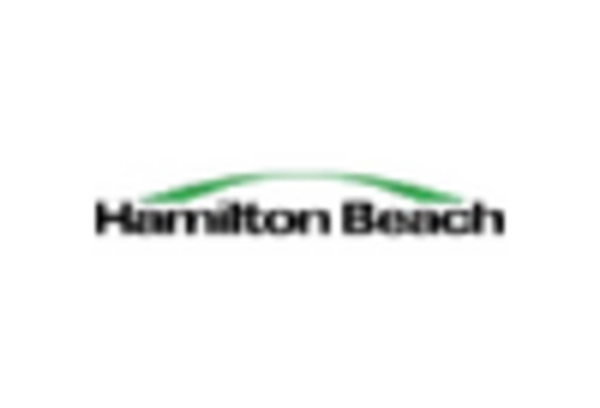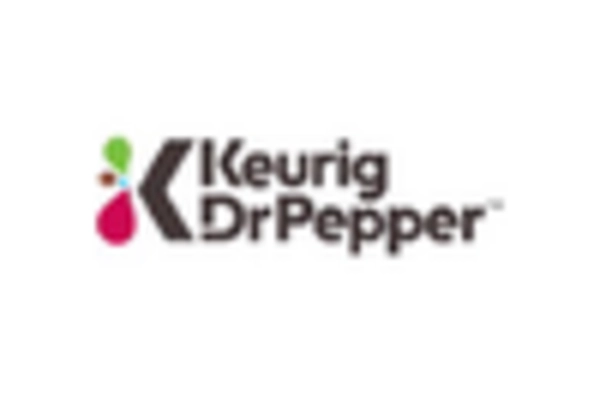Growing Demand for Home Brewing Solutions
The coffee machines market is experiencing a notable surge in demand for home brewing solutions. As consumers increasingly seek convenience and quality, the preference for coffee machines that allow for personalized brewing experiences is on the rise. According to recent data, approximately 60% of households in the US own a coffee machine, reflecting a strong inclination towards home preparation. This trend is further fueled by the growing popularity of specialty coffee, which encourages consumers to invest in machines that replicate café-quality beverages at home. The coffee machines market industry is thus witnessing a shift towards models that offer advanced features, such as customizable brewing settings and integrated grinders, catering to the evolving tastes of coffee enthusiasts.
Rising Popularity of Single-Serve Coffee Machines
The coffee machines market is witnessing a significant rise in the popularity of single-serve coffee machines. These machines cater to the growing demand for convenience and quick preparation, appealing to busy lifestyles. Recent surveys indicate that approximately 35% of coffee drinkers in the US prefer single-serve options due to their ease of use and minimal cleanup. This trend is further supported by the increasing availability of a variety of coffee pods, allowing consumers to explore different flavors without the commitment of purchasing larger quantities. The coffee machines market industry is adapting to this shift, with manufacturers focusing on enhancing the variety and quality of single-serve offerings, thereby attracting a broader consumer base.
Impact of Health Consciousness on Coffee Consumption
Health consciousness among consumers is significantly influencing the coffee machines market. As individuals become more aware of their dietary choices, there is a growing preference for healthier coffee options, such as organic and low-calorie beverages. This shift is prompting manufacturers to innovate and develop machines that facilitate the preparation of health-oriented coffee drinks. For instance, machines that allow for the use of alternative milk or sugar substitutes are gaining traction. The coffee machines market industry is adapting to these changes, with an estimated 25% of consumers indicating a willingness to pay a premium for machines that support healthier brewing options. This trend underscores the importance of aligning product offerings with consumer health trends.
Technological Advancements in Coffee Machine Features
Technological advancements are playing a pivotal role in shaping the coffee machines market. The integration of features such as programmable settings, touch screens, and connectivity options is enhancing user experience and convenience. Recent statistics indicate that nearly 40% of consumers express interest in smart coffee machines that can be controlled via mobile applications. This trend reflects a broader movement towards automation and connectivity in household appliances. The coffee machines market industry is thus witnessing a wave of innovation, with manufacturers investing in research and development to create machines that not only brew coffee but also offer a seamless user interface. This evolution is likely to attract tech-savvy consumers looking for modern solutions.
Evolving Consumer Preferences Towards Eco-Friendly Products
Consumer preferences are increasingly shifting towards eco-friendly products, significantly impacting the coffee machines market. As environmental awareness grows, consumers are seeking machines that are energy-efficient and made from sustainable materials. Recent data suggests that around 30% of consumers are willing to pay more for eco-friendly coffee machines, indicating a strong market potential for sustainable options. The coffee machines market industry is responding to this demand by developing products that not only reduce energy consumption but also utilize recyclable materials in their construction. This trend reflects a broader commitment to sustainability, which is likely to shape future product development and marketing strategies.


